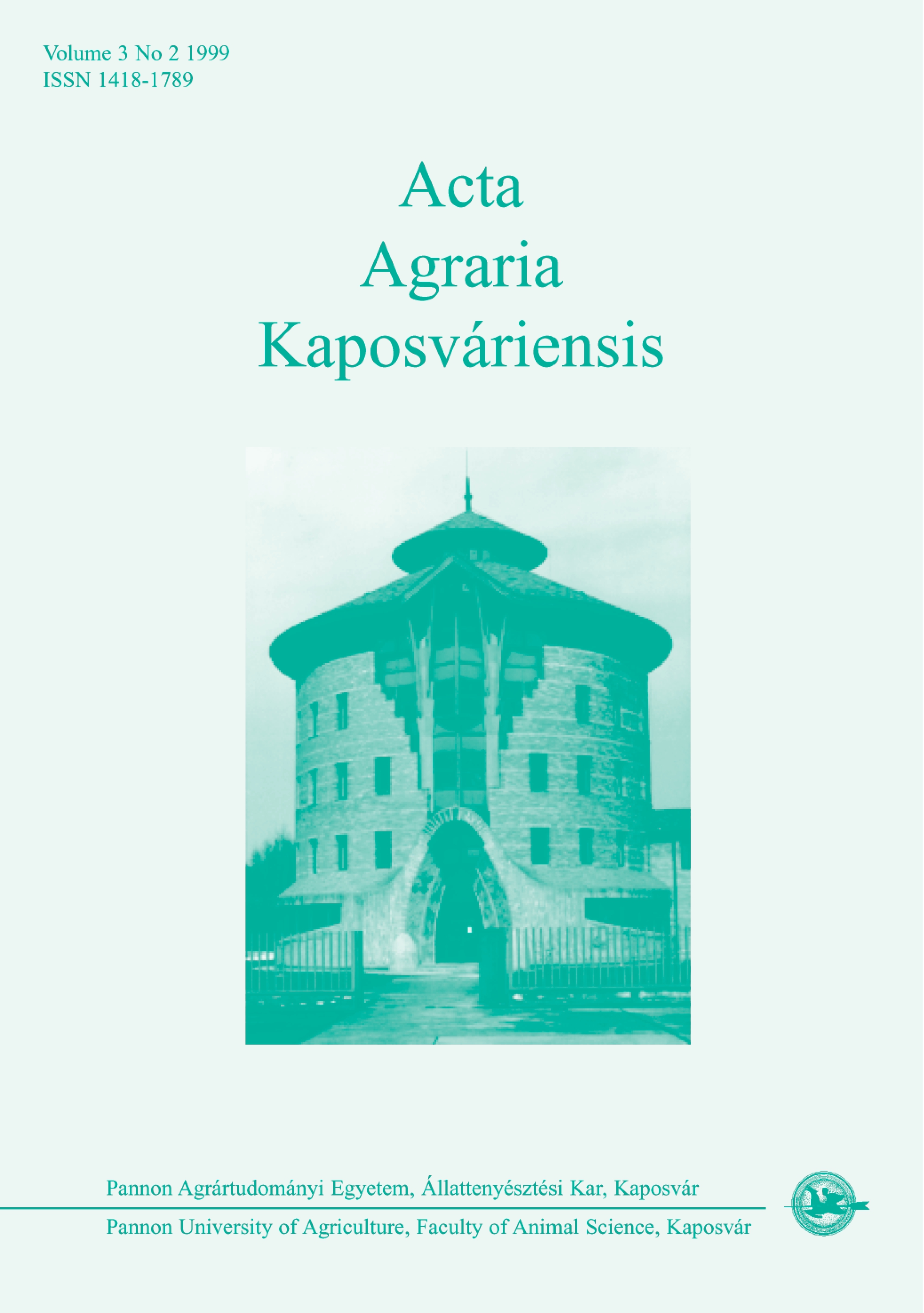Slovene livestock production under transition in view of future accession to EU
Kulcsszavak:
Slovenia, Agricultural policy, EU, CEFTA, Integration effectsAbsztrakt
Objective of the paper is to estimate the economic effects of possible pre-accession agricultural policy scenarios for Slovene agriculture with special emphasis on livestock production. Agricultural Policy Analysis Simulator (APAS) and Policy Analysis Matrix (PAM) methodology has been applied to estimate likely market (supply and demand changes), trade flow (self-sufficiency and international trade) and income trends as well as competitiveness and welfare effects of five policy scenarios for period 1997 (base year) till 2003. CEFTA Agreement proved to be poor solution for Slovene agriculture, reducing agricultural output by 16% and income to one third in comparison with baseline. Proposed reform of national agricultural policy would bring producers ’ losses back, however, situation in comparison with baseline scenario (continuation of current policy) will be quite different, discouraging still beef, poultry and wheat sector, and lowering production in all livestock sectors. Complete adoption of reformed EU CAP according to Agenda 2000 would improve general picture of Slovene agriculture, among livestock foremost cattle production. Beef producers woidd benefit the most, followed by dairy farmers. EU policy with almost complete liberalised pork and poultry market proved as bad prospect for intensive industrialised farming, far from being competitive on open market.
Hivatkozások
AIS, Agricultural Institute of Slovenia (1998). Modelne kalkulacije 1997. (Model Calculations for 1997.) AIS, Ljubljana.
Baldwin, R., Francois, J. F., Portes, R. (1997). The costs and benefits of eastern enlargement: the impact on the EU and central Europe. Economic Policy. 24. 125–176. https://doi.org/10.1111/1468-0327.00018
Bojnec, Š., Swinnen, J. (1997). The pattern of agricultural price distortion in Central and Eastern Europe. Food Policy, 22(4), 289–306. https://doi.org/10.1016/S0306-9192(97)00020-1
Buckwell, A. et. al. (1998). Towards a Common Agricultural and Rural Policy for Europe. European Commission, Brussels.
Erjavec, E., Rednak, M., Volk, T. (ed.) (1997). Slovensko kmetijstvo in Evropska unija. ČZD Kmečki glas, Ljubljana.
Erjavec, E., Rednak, M., Majcen, B., Volk, T. (1998). Slovensko kmetijstvo in trgovinski sporazum CEFTA. Ministrstvo za kmetijstvo, gozdarstvo in prehrano, Ljubljana.
Europäische Kommission (1995). Osteuropa: Strategiepapier der Europäischen Kommision. Agra-Europe 49. Dokumentation, 28.
European Commission (1995). Agricultural Situation and Prospects in the Central and Eastern European Countries: Slovenia. Working Document, European Commission DG VI. Brussels.
European Commission (1998). Agricultural Situation and Prospects in the Central and Eastern European Countries – Slovenia. Working Document, European Commission DG VI, Brussels.
European Commission (1999). Agenda 2000. The Council decisions.
Eurostat (various years): Agricultural Prices. Eurostat, Luxembourg.
Hertel, T. W. (1989). PSEs and the Mix of Measures to Support Farm Incomes. The World Economy 12. 17–27. https://doi.org/10.1111/j.1467-9701.1989.tb00460.x
Hill, B. (1996). Farm Incomes, Wealth and Agricultural Policy. Avebury, Aldershot.
MAFF, Ministry of Agriculture, Forestry and Food (1993). Strategija razvoja slovenskega kmetijstva. (Strategy of Agricultural Development in Slovenia.) MAFF, Ljubljana.
MAFF, Ministry of Agriculture, Forestry and Food. Poročilo o stanju kmetijstva, gozdarstva in živilstva. (Slovenien „Green Report”.) MAFF, Ljubljana.
OECD (1996). Producer Subsidy Equivalents and Consumer Subsidy Equivalents Database, 1979–1995. OECD, Paris.
OECD (1997). Agricultural Policies in Transition Economies. OECD, Paris.
SURS, Statistical Office of the Republic of Slovenia. Different sources. SURS, Ljubljana.
Tsakok, I. (1990). Agricultural Price Policy. Cornell University, Ithaca. https://doi.org/10.7591/9781501746376
Letöltések
Megjelent
Folyóirat szám
Rovat
License
Copyright (c) 1999 Stane Kavčič, Emil Erjaveč, Tina Volk

This work is licensed under a Creative Commons Attribution-NonCommercial-NoDerivatives 4.0 International License.






